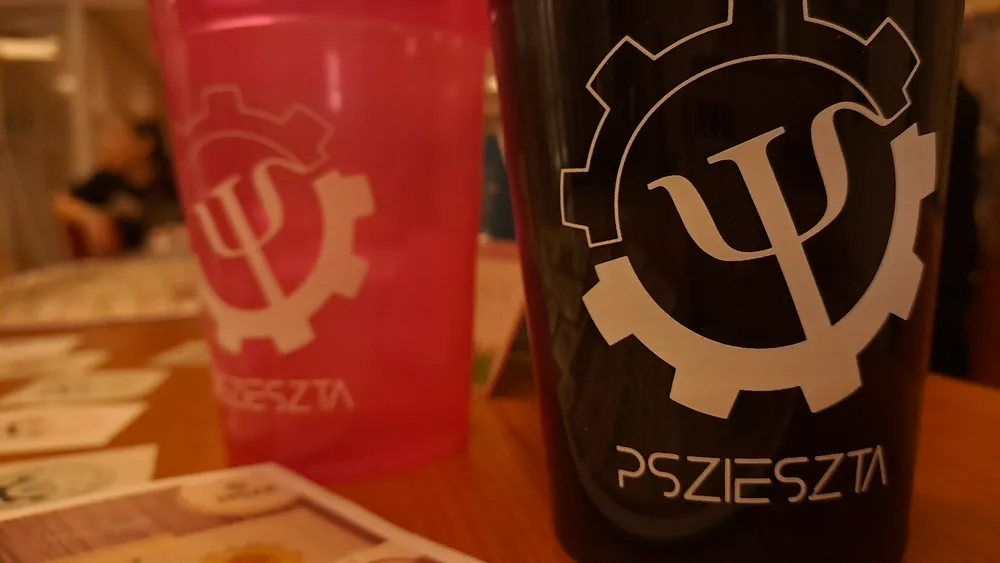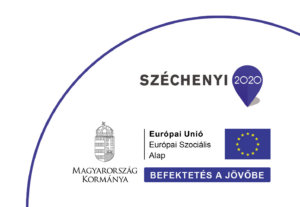
Üdvözlünk, welcome, herzlich, wilkommen, Bienvenue… greets the Pszieszta –short for Psychology Days of Pécs – webpage all who would like to be informed on the current programs of the association Psychology students of the University of Pécs. The ambitious program, consisting of numerous events, culminates in a yearly spring conference lasting for three days. With a programme made up of lectures, workshops and discussions – interesting to students and meaningful to all, Pszieszta makes a careful attempt at delivering on its promises: to draw people and psychology closer. I had the opportunity to visit this year’s main event, granting me a look into the basics of what it’s like to be a student of the Psychology institute.
Pszieszta has been around since 1996, with a number of intriguing themes providing an ample look into the different aspects of Psychology. There are programs in number of different locations around the campus, in Hungarian and English also. This more inclusive approach is continued by opportunities for students themselves to create presentations on their research, granting them a chance to show their mettle in a supportive space, allowing them to hone their skills and become more successful. Themes change from event to event, with this year’s focusing on “our roots” – a catchy slogan reflecting on the professional but light hearted, and welcoming nature of the event. This year the event was held from March 20th to 22nd, with me catching the last wave of it.
It was a rainy day – the “B” building of the Institute of Humanities’ campus never seemed cosier. Entering at the reception and leaving the gloomy background behind, I have come to visit familiar and new faces alike as the always cheerful organizers, helpers and members greeted me. After a quick guide and registration I was off to my predesignated lecture. As I moved upwards through the stairs it seemed as though the passionate members put up stands in every turn-around. There were opportunity to donate, have a talk, and even indulge in some free coffee.
Having a few conversations, taking some pictures; just the casual 9-11 job of the PCA editor, always on the prowl.
Finally, as I’ve reached the lecture hall and made myself comfortable I began to notice how quickly the room filled with people from all sorts of age- and interest groups. I quickly came to realise how such modest crowd could gather this fast as the topic was about stress, with Dr. Tamás Bereczkei presenting it.
The lecture was based on a normal, to the accustomed University student, an all-round regular formula, with a non-interactive linear presentation style, and time for questions at the end. The theme was about stress, the social answers to it and the chronological explanation of how certain conditions that defined it evolved. Starting with a biological approach, expanding into social and cognitive studies; it maintained the, roughly put, expertise of Psychology. The lecture reached on the topics of how stress sources and factors in our lives can seem constant, but at the same time have gone through enormous changes, while also staying constant in the context of certain human interactions. Covering the stress in evolution, it’s positive (and to us sometimes overwhelmingly so) and negative aspects, social interactions and systems, while taking the cornerstone of individuality to a new concept, it reached a conclusion more neutral than clearly one-sided. At the same, having reached into the topics of the historical evolution of society, norms and technologies from which the context of stress factors can be evaluated, taking into account the different types of stress’ (HPA controlled and Sympathetic) and connecting it with the different roles in the hierarchy of social spaces (leaders-workers) the thorough lecture provided just enough to satisfy and at the same time leave you with expandable knowledge. Loneliness, stress, sleep, separation, status, boredom, the question of autonomy…
from experiments to studies, facts and theories this one and a half hour seemed to encapsulate everything, yet making it down-to-earth and understandable.
With a verdict of staying in a cognitive harmony of body and mind, informing us of the importance of immunity through and active lifestyle, the conclusion seemed to grant solace to our species’ future resolution. It did not come as a surprise that after a deserved applaud, Dr. Bereczkei was – to be blunt – bombarded with questions about the different topics discussed, with colleagues of his, students and others alike sharing in the conversation. Overall, a really enjoyable experience, as it granted a solid look into what it’s like to be a psychology student, as well as granting insight in the role and prospect of stress on a collective and individual level.
After three days of interesting and engaging programs, Pszieszta’s conclusion came with exclusive concerts, a raffle and some great vibes in the Szenes klub. The two bands, Porszem and Máklikőr made an enjoyable and exciting performance in not at all surprising conditions, as the Szenes crew provided ample support and a perfect location for these underground hit bands. Expectations high, the air tingling with a sensation of feelings, looped with care and made into reality. Delivering in performance, staying true to the event and carefully composing a great experience for the audience. All and more one could ask for, closing the night, and drawing the whole marathon for the Pszieszta members to a halt, while cheerfully going out with a bang.
Friendly faces, psychology experts and entrepreneurs, opportunities, intrigue and concerts: just a few words to describe the now regular Pszieszta event. With a passionate organizing crew and much attention, the event captured the essence of what it is like to be omnipresent in the Faculty of Humanity’s social and academic life.
If even on a miniature scale, the event helps in drawing in the interested, educating the committed, and supporting the aspiring researchers to dream big and reach high.
With inclusive, entertaining and insightful lectures, workshops and social programs, the event is sure to continue on its quest to tighten the gap between everyday life and psychology. I can only recommend giving it a chance; whether they be international or Hungarian students, the Psychology Days of Pécs is a rewarding, entertaining and fun experience for all. Who knows, maybe there is something to learn about our roots and expanding upon it after all…
